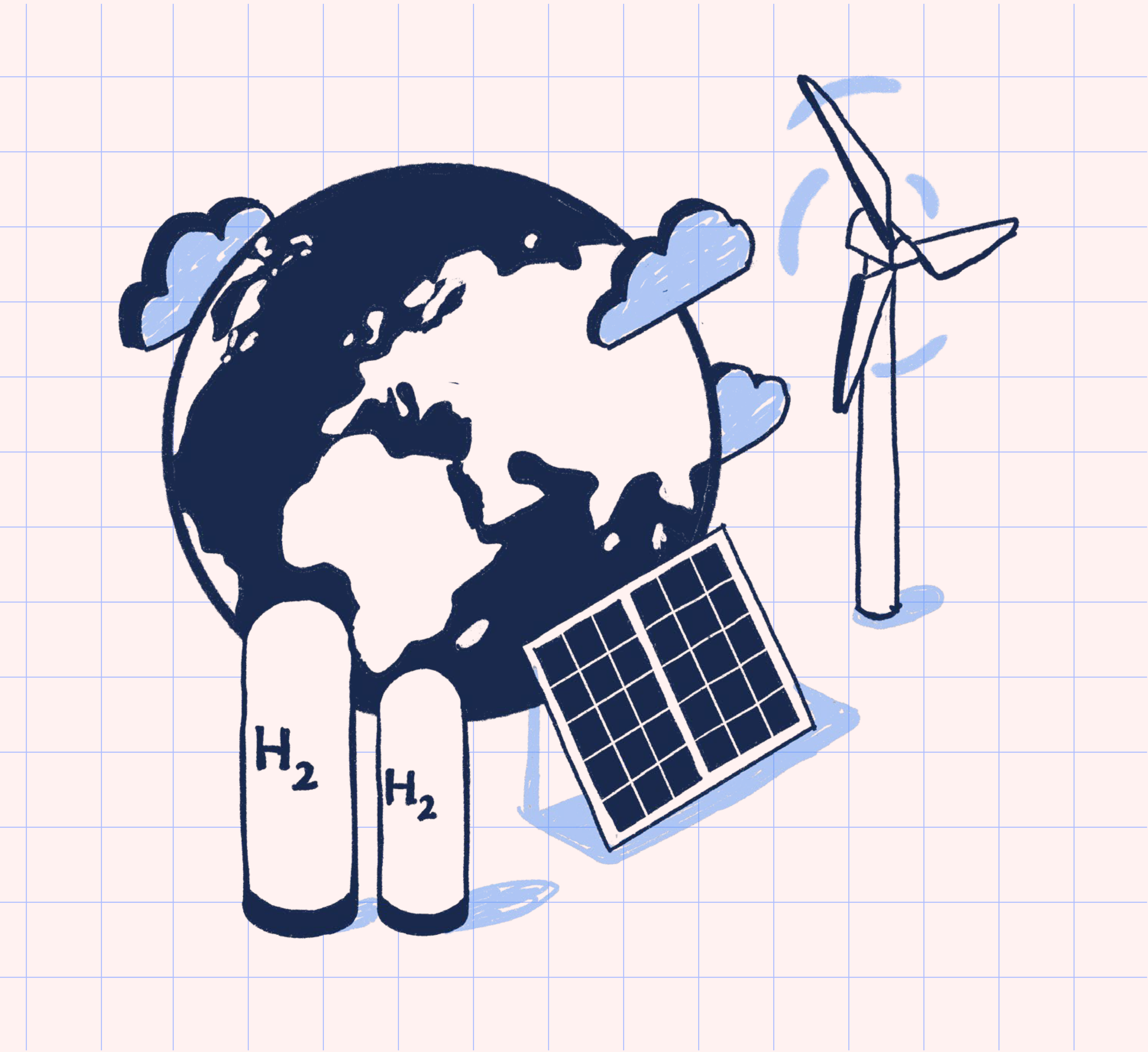4 key insights from rebel’s ‘New perspectives on green hydrogen in Africa’ webinar
hydrogen
Green hydrogen in Africa has the potential to shape our sustainable future, redefining our economies in the process. Still, huge challenges await. How can we go beyond the hype and make green hydrogen projects financially viable? And how do we ensure production doesn’t just benefit offtakers in industrialized economies, but the African continent as well? As an allround advisor with a thorough understanding of the green hydrogen landscape, Rebel forms a link between developers, governments and other parties. We provide support in technology, certification and standardization, do value chain analysis and aid in negotiations between the public and private sectors. The various players in the green hydrogen market all bring a very different point of view to this new sector. In order to learn from one another and gain inspiration, Rebel decided to bring together these perspectives for an open and critical conversation on green hydrogen in Africa. Here are four key insights from our webinar on March 5th.
-
No green hydrogen economy without partnership
South Africa currently has one of the highest carbon footprints per capita, but aims to achieve net zero economic growth by 2050. In order to meet its climate targets, transitioning from grey to green and blue energies will be crucial. The country wants to become one of the world’s major producers and exporters of green hydrogen.
As Dr. Rebecca Maserumule, chief science and technology representative at the Department of Science and Innovation, explained, cooperation is key to making South Africa’s hydrogen vision a reality. ‘These strategies are very complex, with a lot of moving pieces. They require a structure that allows South Africa to get projects up and running. We need multilateral support, but like Germany and Japan, we also need to organize ourselves as a government, with private sector support.’
Currently, the country is running a number of large-scale catalytic projects across provinces and sectors. Dr. Maserumule: ‘There is more comradery between departments than ever. We are drawing from the same handbook and throwing effort and resources towards the same handful of projects. Putting in a critical mass of talented people who can make decisions in the same structure will help bring these projects to fruition.’
-
Mauritania shows both the opportunities and the challenges of a green hydrogen future
With its 750 km coastline, its abundant hours of sun and wind, and its physical closeness to Europe, Mauritania is well-suited to green hydrogen production. The country has already attracted investors for a number of projects and sees major opportunities in the production of DRI, or green steel. A comprehensive regulatory code is on the way.
But in order to kick its green hydrogen production into high gear, the African nation has to overcome considerable challenges. ‘Like other developing countries, we have a limited local industrial capability’, said Khroumbaly Lehbib, senior advisor for the energy transition and the development of green hydrogen at the Ministry of Oil, Energy and Mines. ‘Our infrastructure development is not at the same level, and we will have difficulty finding skilled workers.’
Still, Mauritania has reasons to be optimistic, said Lehbib: ‘We hope development partners will play a big role. We’ve already gotten assistance from the World Bank, the United Nations Development Programme, the European Union We are also collaborating regionally with African nations, and lobbying internationally to ensure Mauritania benefits from green hydrogen as much as industrialized nations.’
-
How shipping could form a pillar of the green hydrogen economy
Ports and shipping have a big role to play in enabling the green hydrogen economy. But as transport specialist Rico Salgmann of the World Bank argued, maritime infrastructure isn’t just crucial as a means of transport, it can also be a source of demand for green hydrogen and its derivatives.
As the International Maritime Organization sets out to decarbonize shipping, Salgmann sees reason for hydrogen producing countries to look beyond exports: ‘South Africa, Morocco, Mauritania, and other potential hydrogen economies have to compete in distant markets that have easier access to lower cost financing, which may offset the favorable renewable potential. But the market for supplying marine fuel to ships passing by or calling their ports is a special one: the customer comes to you and buys fuel where it’s produced.’
Many of these countries are situated along key maritime choke points, noted Salgmann. Moreover, ship owners and operators are confident their vessels can run on green ammonia or methanol. And because the shipping industry is generally bound by mandates, the hydrogen producing countries supplying alternative fuels wouldn’t have to worry too much about competing with cheaper fossil-based fuels. Still, Saglmann emphasized, regulation is key: ‘There has to be a framework in place. Here, international organizations can play a role.’
-
Why entrepreneurship is key to making the green hydrogen economy work
Adinda Preller, head of business development at PGE, a green hydrogen producer developing its first location in Saldanha, South Africa, sees a big role for entrepreneurship in making the green hydrogen economy work. ‘The scale of these projects is absolutely massive, with billions of dollars of capital deployed and different pieces of infrastructure that all need to be linked to each other’, said Preller. ‘One way to overcome the scale of what needs to be done is entrepreneurship. Entrepreneurs have experience in taking risks and seeing commercial opportunities.’
There are great expectations around green hydrogen and the economic, environmental, and social benefits it will bring. However, as Preller reminded us, these benefits will likely be phased out over time.
After much hype and optimism bias around green hydrogen, Preller has seen the dust on the market settle: ‘We see more realistic numbers coming through, with emphasis on de-risking projects and value chains. In order to be competitive in a global market as African entrepreneurs, we don’t just need upgraded infrastructure, we also need to make sure our supply chains are well performing and consistant.